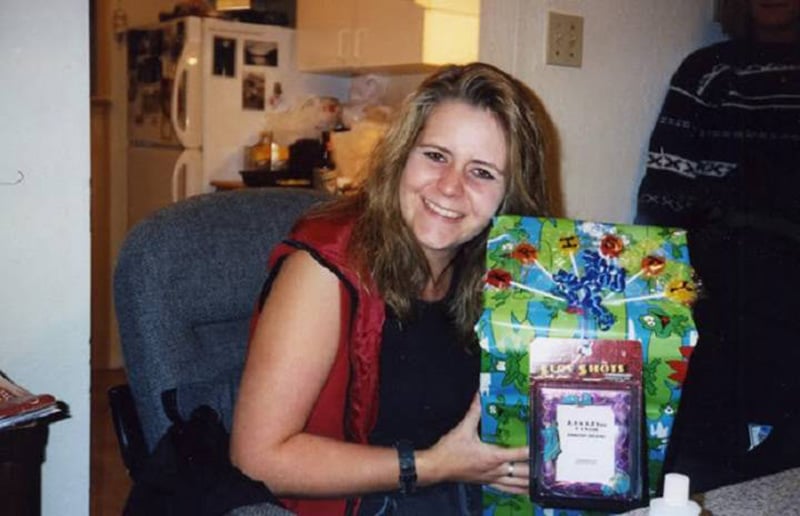No one should be satisfied with the secrecy around a botched “Mr. Big” murder case in B.C. that raised questions about the integrity of the justice system.
Especially Attorney General David Eby.
Kristy Morrey, 28, was found dead in her small Port Alberni home on a Sunday in 2006. Police believed she had been murdered, but couldn’t come up with evidence to charge anyone.
Nine years later, they re-opened the case and set out to get a confession from Morrey’s former boyfriend, truck driver Larry Darling, spending $2 million on an elaborate “Mr. Big” sting.
The RCMP claimed it worked, holding a press conference with senior Mounties and members of Morrey’s family to announce Darling had been charged. Darling, then 51, spent the next two years in jail awaiting trial.
And while he sat behind bars, the case fell apart, in a way that cast doubt on the basic legitimacy of the justice system. Crown prosecutors look negligent, the RCMP worse.
Instead of answers, the public, the man wrongly charged, and the family of the victim have been stonewalled.
Friday afternoon is the traditional dumping time for announcements that governments hope will be ignored. On the last Friday in October, the BC Prosecution Service released recommendations from an internal investigation into the failed prosecution.
They hint at big problems in the RCMP and the prosecution service.
But they only hint, in the most opaque, bureaucratic way. And the report — an internal review by a senior manager in the prosecution service, not someone independent — is being kept secret.
Eby, in his past life with Pivot Legal Society and the BC Civil Liberties Association, would have been demanding answers and accountability.
The Mr. Big sting
Darling was the target, or victim, of a Mr. Big sting, an elaborate, expensive, made-in-B.C. law enforcement tactic introduced in the 1990s that’s been used to convict hundreds of people.
If police decide someone is guilty, but don’t have evidence, they use the sting to exploit friendship, loyalty, fear and greed to wring out a confession.
That in itself should set off alarm bells. And those bells should be deafening once it’s clear how far police will go to win.
The Mr. Big sting relies on fantasy, scripted by police officers and lavishly funded by the public. Undercover officers create chance meetings, befriend the target, become confidantes, provide gifts. After a while, they hint that they might be involved in crime, flashing large amounts of cash and living large with no obvious source of income.
Then they draw the target into breaking the law. Slowly at first, perhaps asking them to deliver a package, without saying what’s in it. Getting them to step over a line. And then repeatedly. All fake crimes, created by police officers.
Then they create fear. The officers might stage a beating of someone who supposedly crossed them, with Hollywood-level makeup. The target sees the price to be paid for crossing these new friends.
And then the target’s new friends offer the chance of a much bigger payday for participating in a crime.
But because it’s such a step up, first the target has to meet Mr. Big and win his approval.
Mr. Big — another officer — says he knows the target has committed whatever crime the police think they did.
Tell me about it, he says. Then I’ll trust you, protect you and you’ll make big money. And since the target has seen the beating and torture you get if you anger the boss, there’s a powerful motive for staying on Mr. Big’s good side.
And that’s how the RCMP set out to get Larry Darling, Morrey’s ex-boyfriend, divorced and 14 years older, who had been out with Morrey and friends that night.
No evidence linked Darling to the death, and the initial RCMP investigation cleared him, according to a BC Supreme Court judgment.
But the police still thought he was guilty, and in February 2015, nine years after Morrey’s death, they launched a Mr. Big sting against him. Over the next nine months, 60 officers staged 109 “scenarios” — scripted encounters with police officers playing a variety of roles — as part of their plan to get a confession.
They spent $2 million creating a fantasy world, involved him in elaborately created crimes, befriended him.
How much pressure is there on officers to get a conviction — or at least a confession — after $2 million has been spent under their watch? (And how could the $2 million have been used more effectively to solve other crimes?)
The Supreme Court of Canada upheld the use of the Mr. Big tactic in a 2014 ruling. But it also threw out the confession police had obtained in that case and warned of the potential for abuse.
“The Mr. Big technique comes at a price,” the judgment said. “Suspects confess to Mr. Big during pointed interrogations in the face of powerful inducements and sometimes veiled threats — and this raises the spectre of unreliable confessions.... In other contexts, they have been responsible for wrongful convictions — a fact we cannot ignore.”
The current law “provides insufficient protection to accused persons who confess during Mr. Big operation,” the court found. It required judges to look more critically at the stings — including police actions — and start with the assumption that the confession is not admissible.
That should have been a warning to RCMP investigators and Crown prosecutors before they launched the Mr. Big operation against Darling months later.
It wasn’t.
A case unravels
At the press conference to announce Darling’s arrest the RCMP didn’t mention the Mr. Big sting. But they did appear to manage the media message. The CBC report said, “It’s believed new methods in forensic technology may have helped solve the case.” CTV’s report said, “In the years after the murder, police also said they were confident that advances in forensic technology could eventually lead to charges.” The Port Alberni News was more specific, quoting Inspector Chuck McDonald, officer in charge of the RCMP’s Division Serious Crime Unit in B.C. “Modern forensic technology not available to the police at the time of the crime helped the police discern new evidence,” he said.
Does a scripted, $2-million sting count as “forensic technology”? Or were the RCMP misleading the media, the public and potential jurors?
The case never got to a jury.

The first step in BC Supreme Court was to establish whether Darling’s confession was actually voluntary and admissible.
But the process fell apart. Prosecutors are required to disclose all relevant information to the lawyers for the accused. Their job is not to convict, or win; it’s to present the evidence and ensure justice is done. If the investigation has discovered evidence that casts doubt on guilt, that must be shared. If there are questions about the way the investigation was conducted — as there would be in a Mr. Big case — then all the police emails and notes about the case must be shared.
That didn’t happen. In fact, the RCMP and the Crown were repeatedly challenged on their conduct, with devastating results.
Darling’s lawyer Kevin McCullough, in a brief to the court, said he would argue that the RCMP Staff Sgt. Greg Mainman, in charge of the sting, “has misled the defence and the Court with respect to disclosure.” He went farther, accusing the officer of perjury in affidavits filed with the court.
None of which has been proved. But as the parties wrangled, Justice Douglas Thompson noted, “Crown counsel advised that Staff Sgt. [Greg] Mainman had been locked out of his office, and that his devices were in the process of being searched.”
Eventually, the Crown prosecutors acknowledged significant disclosure failures.
Thompson set out the problem, and the cause.
“There has been a failure on the part of the Crown to properly fulfill its disclosure obligations,” he wrote. “I think this failure is rooted in the apparent willingness to allow the RCMP to assume responsibility for decisions that are properly those for Crown counsel to make. It is not so much that the Crown has displayed a dilatory and casual attitude to disclosure but that it has abdicated the important disclosure responsibilities to make decisions as to relevance and privilege.”
Other court filings showed how serious the problems might be. They were made public when the Vancouver Sun and CHEK TV went to court for access to arguments filed as part of the case, over objections from the RCMP and Crown lawyers.
Defence lawyer Kevin McCullough’s submission alleged a wide variety of failures, including a former prosecutor’s refusal to accept evidence from a member of Morrey’s family. The prosecution confirmed the woman said she had tried to provide a letter from Morrey that talked about her relationship with Darling, but the former prosecutor said “Don’t give it to me; it will just fuel the fire with McCullough.”
The Crown stayed the charges against Darling June 13. Dan McLaughlin, communications counsel for the prosecutor’s service, issued a statement saying the charge was stayed “after further information was received by the prosecutors with conduct of the file.”
“After reviewing this information and the rest of the file materials the prosecutors concluded the charge approval standard could no longer be met. In these circumstances a stay of proceedings is the appropriate course of action.”
Quite a useless explanation.
What “further information” did prosecutors receive, and where did it come from? Why didn’t the prosecutors have it before Darling was arrested and jailed? Was Darling’s lawyer right in challenging the investigation and lack of disclosure? Was Justice Thompson right in concluding the Crown prosecutors had “abdicated the important disclosure responsibilities” to the RCMP?
And what was the RCMP fighting to conceal about their conduct in the Mr. Big sting?
We still don’t have answers to those questions.
On July 25, Peter Juk, the assistant deputy attorney general, asked Robert Wright, a senior lawyer in the BC Prosecution Service, to conduct a review of the handling of the case.
Bad enough that the case was to be reviewed internally. But Darling’s lawyer McCullough noted to the Vancouver Sun’s Ian Mulgrew that Wright “was directly providing legal advice to the RCMP regarding this undercover operation.”
“To now have Mr. Wright assess whether there was misconduct by a fellow Senior Crown Counsel, and the RCMP involved in that same investigation, is neither reasonable nor prudent,” McCullough said.
The prosecutor’s service said “A clear statement will be issued following receipt of Mr. Wright’s report.”
Which turned out to be a classic example of weasel words.
Wright’s report is done, but it’s a secret. The government only released a summary of recommendations — not even the actual recommendations.
And they tend to obscure rather than enlighten. Number five, for example, is “Ensure BC Prosecution Service policy and practice clearly establishes the requirement to have vetted disclosure prepared before swearing the information or preferring the Indictment.”
That suggests prosecutors didn’t properly oversee disclosure before they charged Larry Darling. If they didn’t, why not? Was it an aberration, or have hundreds of people been denied information that could help them be found not guilty?
We simply don’t know. Because the government has decided to keep secrets from the citizens it’s supposed to serve.
Trust in our justice system is a critical foundation of a functioning society. Something went seriously wrong in the prosecution of Larry Darling.
And citizens deserve — need — real, honest answers, not a coverup. ![]()
Read more: Rights + Justice, BC Politics
















Tyee Commenting Guidelines
Comments that violate guidelines risk being deleted, and violations may result in a temporary or permanent user ban. Maintain the spirit of good conversation to stay in the discussion.
*Please note The Tyee is not a forum for spreading misinformation about COVID-19, denying its existence or minimizing its risk to public health.
Do:
Do not: